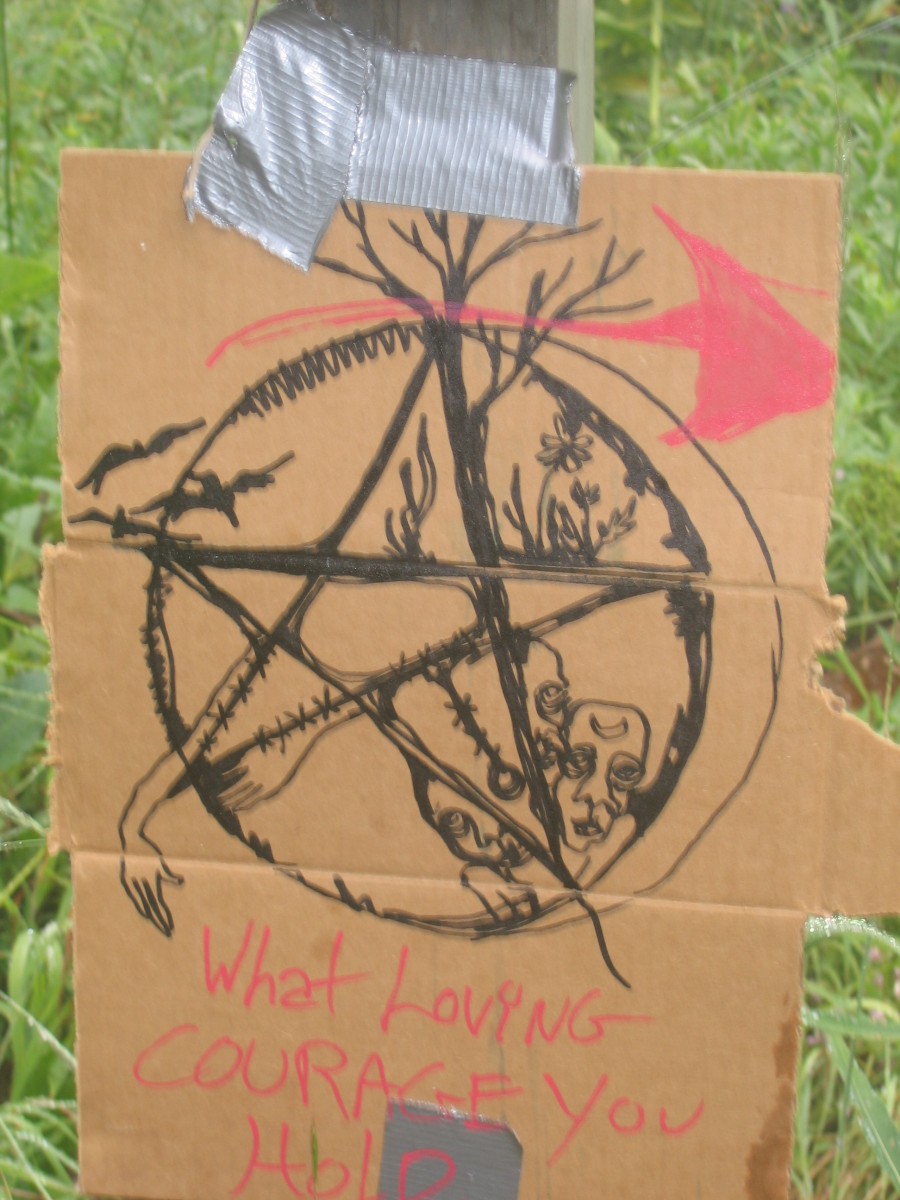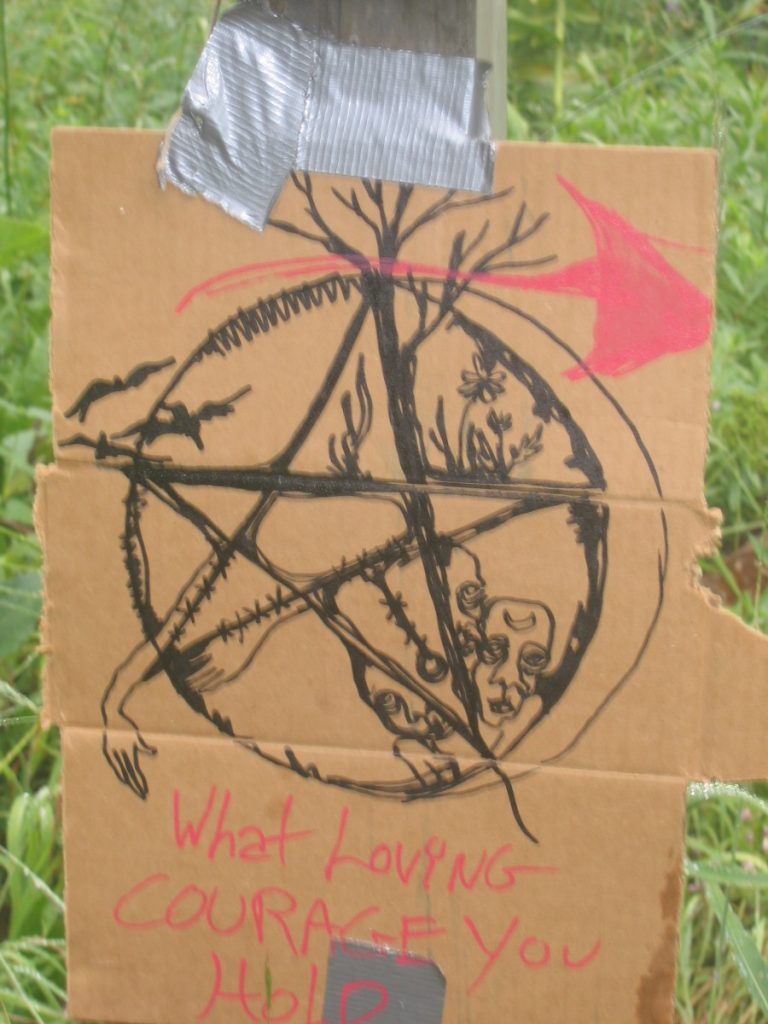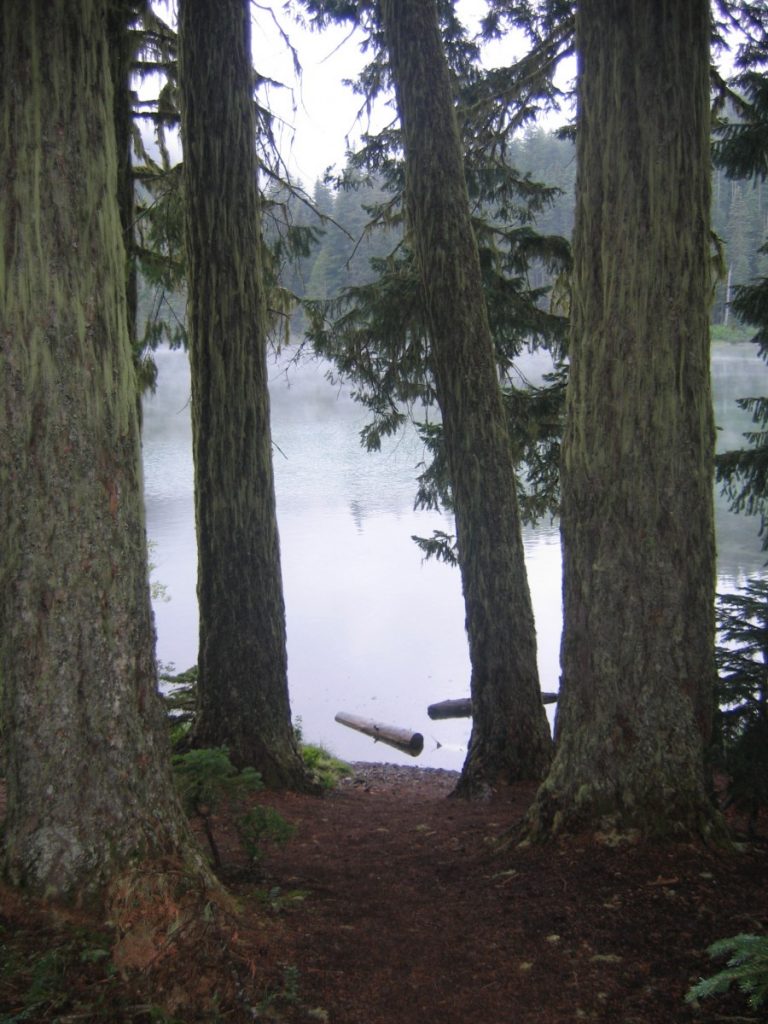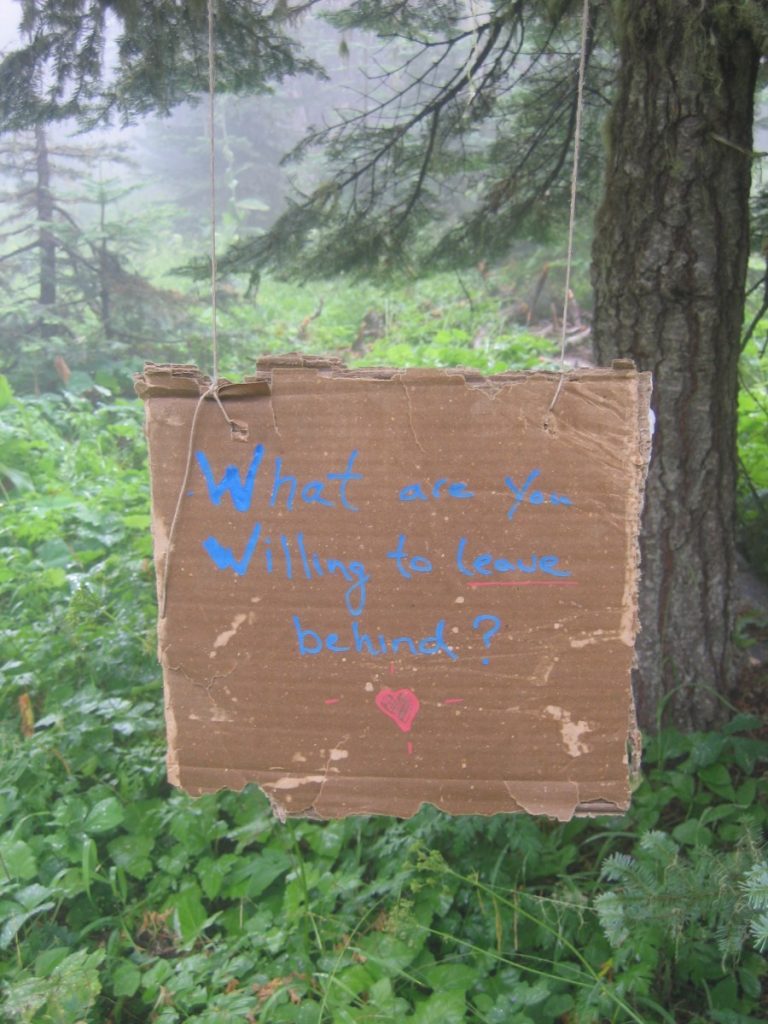The Wikipedia definition of somatics is this: “Somatics is a field within bodywork and movement studies which emphasizes internal physical perception and experience. The term is used in movement therapy to signify approaches based on the soma, or “the body as perceived from within,” including Alexander technique, the Feldenkrais Method, and Rolfing.” I don’t know anything about the Alexander technique, the Feldenkrais Method, or Rolfing. I do know that with the possible exception of physical education classes (which, by high school, I spent sitting on the floor of a far hidden restroom in the theater building, reading novels) it had never occurred to me, nor been encouraged, to connect to my body. I was a cerebral child, nose always in a book, enrolled in advanced English classes (one of these, in a small Georgia town, in which five students and the teacher spent all day reading Shakespeare in a utility closet stuffed with a round table and chairs). A true life was the life of the mind. This I was taught and this I believed.
I was a cerebral child but I also loved music, and poetry, and that love came from a place in my body that I couldn’t identify. At seventeen I learned what it was to shut off my mind completely through dancing. For years this was the only physical activity and connection with my body I had, besides sex, upon which (I am realizing as I type this) I projected so much of the disconnection from the physical that it became a tangled mess, and is a subject for another time. Dancing was basically it, and it wasn’t enough, but I didn’t know that. My body/spirit cried out for that connection, it thirsted, it starved. I tried to drink my way through the problem, I tried to fuck my way through the problem, I tried to pray my way through the problem. Mostly I tried to think my way through the problem. None of it worked, though all of it brought me closer to the core of the conundrum.
I was a vaguely practicing pagan/witch from my teen years, and by that I mean I had an altar in my house and a longing to be closer to the earth. I read all the books and none of it felt real. “On the full moon, drink a glass of spring water and chant a Greek hymn to Demeter while turning in three clockwise circles.” Where do you get spring water? What does Demeter have to do with my life? How do you speak Greek? I could see when the moon was full in the sky but besides that tenuous connection, it was all meaningless. Within the fluff I sensed something real, but didn’t know how to get to it.
Sitting in my favorite coffee shop in Portland during a restless summer, I saw a flier for a “witch camp” in the forest. The artwork was a pentacle made of flowering branches. I was just married and unhappy with it, unemployed, bored and miserable. I knew I had to go. Something in those flowering branches called to me. Though it was a simple drawing of pen and ink, I knew those flowering branches were real, that whoever had drawn them had done so with a connection to whatever it is I was looking for, so I went.
Seven nights in the forest with 125 strangers. A tent under the trees. I was terrified of the dark, and bears, and cougars, and these people who seemed like they came from another dimension than the urban world of parties, alcohol and cool my new husband and I existed within. There was a woman with a newborn baby who slept in the arms of dozens of people as if he was born to just such a life, which he was. There was a lake that we swam in naked, singing songs in harmony while we paddled, getting long ropes of algae tangled in our hair. There was a thunderstorm on Lughnasadh, the Celtic holiday named for a storm god. We ate ferns and salad greens collected from the forest around us. People ran into bears on the trail. At night we had rituals in a big meadow, where we mourned and sang and danced together, crying out for a way of being forgotten by our people and remembered there, by us.
Every morning was class, but this was different from any class I’d ever taken. Being new to the whole thing, I entered into the required class for beginners, called Elements. This was less about witchcraft and more a crash course in animism, now that I think about it. Each day we worked with one of the five elements: earth, air, water, fire, and spirit. For Air we climbed to a high ridge and felt the wind blow across our faces. I sat with growing green plants and paid attention to the way my exhale was their inhale and my inhale their exhale. For Water we sang to the water in each other’s bodies, and swam in the lake, and cried. For Fire we smelled the smoke in the air from nearby summer blazes, and meditated on how fire clears the way for new growth, and practiced channeling anger through our bodies. For Earth, we were asked to find a plant that called to us, and to sit with it for a long time. I wrapped my arms around a tree and had a conversation in something beyond words, as real as any conversation with a human; the tree asked me why I was running around so frantically. There is something to be learned from having roots, it told me. I can’t remember what we did for Spirit, which is apt since Spirit is the ineffable, intangible Thing that holds it all together. It is the dark spaces between stars and between atoms, the yearning that brings people together and causes plants to bloom, the creative spark that causes a being to create something never before seen in the world. Every evening we had rituals and the stars looked down on us, ringed in the meadow. When we left, we packed out everything we’d packed in, except something like a part of our souls. That, we gifted to the land, forever to stay.
In the shower at home, washing away seven days of grit and dust, I leaned on the wall and cried; knowing that in order to live true to what I’d found in the forest, I’d have to change almost everything in my life. And I did. I still am. Everything I’d learned up to that point ran contrary to what I learned in that week in the forest; that somewhere deeper than my intellect is a wisdom of the body/spirit. I dislike the slash between those two words. I’d prefer to have one word for both, because I don’t think they are separate.
***
In The primacy of the body, not the primacy of perception, E. T. Gendlin discusses the way the body interacts with the world with an intuitive, felt instinct that goes beyond any of the five senses or the intellect. In musing, “isn’t it odd that no word or phrase in our language as yet says this?” (3) he defines this indefinable thing with an ellipses: (…). It is powerful to read this paper and keep running into the … Every time I saw it, the … in myself cried out with recognition. Yes, that! That is the thing, the … that I found in the forest. It is the part of myself that is at odds with my rational intellect, which wants to be linear and controlled. It is odd to even call it a “part” of myself, because really my intellect is a “part” of … We developed our intellects as a tool for survival but the deeper … that is really in charge is the body and the felt sense of the world that we might call intuition or spirit. It is both incredibly present and physical, and it is the intangible thing that is connected to the … in each other and other creatures. It is the thing that reacts first to intuitively felt situations. It is our life force and it is the thing that is connected to the life force of everything else. It’s the umbilical cord that keeps us rooted in our bodies to the wild, present world and it is the thing we keep trying to cut off, because it doesn’t make ‘sense’.
“The … is interaction. It is the body’s way of living its situation. Your situation and you are not two things, as if the external things were a situation without you. Nor is your bodily sense separate from the situation and merely internal. It is certainly not just an emotional reaction to danger. It is that, but it also includes more of the intricacy of your situation than you can see or think. Your bodily … is your situation. It is not a perceived object before you or even behind you. The body-sense is the situation, inherently an interaction, not a mix of two things” (3).
The … is something we are born with/into/from, and then culture attempts to quite literally school us out of it. In Sitting, Writing, Listening, Speaking, Yearning, Don Hanlon Johnson describes how the natural yearning towards learning that we all feel “is bodily, reflecting cascades of neuropeptides, tingling in the cells, a vigor in the muscles, a vibrancy in the breath, a strong heartbeat. It is prelinguistic, there in the womb” (1). We are each called into the world to learn and play and interact with everything around us, in a deeply embodied way, and then we are sat down in rows in cold, ugly classrooms for most of our childhoods. Through this we learn that the body is not something to be trusted. The body is something to be controlled. And because the … that we all are is interactional experience with each other and the world, that connection that is interaction is cut off. We are each locked into the jail cells of our minds and the narrow tunnel of intellectualized, abstracted distance from our bodies and the bodies of everything around us.
***
When Allan and I were first discussing this project, he said that he wanted it to be a ‘fiery manifesto.’ I balked at that. Who am I to tell anyone else what to do? How can I know that what I think is right, is right for everyone? I deeply believe there is no one right course of action for anything. But this connection to our … that connects us to the … of everything else, this I can be fiery about. This I can say unequivocally is the first place we each need to go. This is the place where true action will come from. When I say true, I mean a truth that comes from a wisdom we are each able to tap into, if we allow it to arise from the … rather than our intellect first. The … is interaction, and the … will always lead to true action. This I now trust, more than ever before.
Word doc: Somaticspt1




Leave a Reply